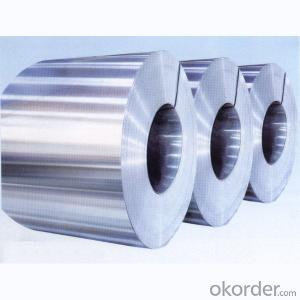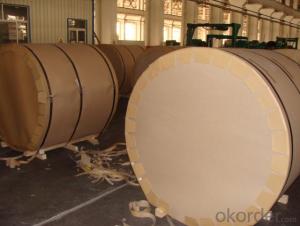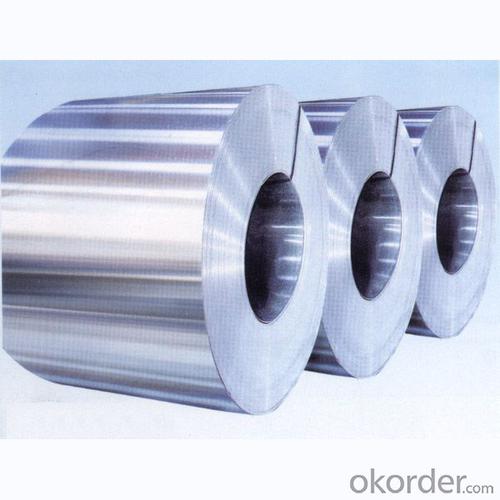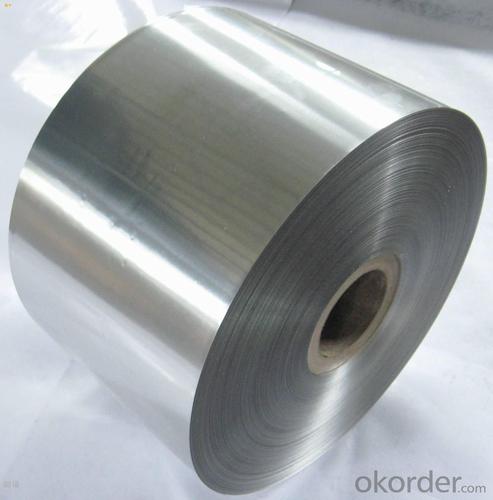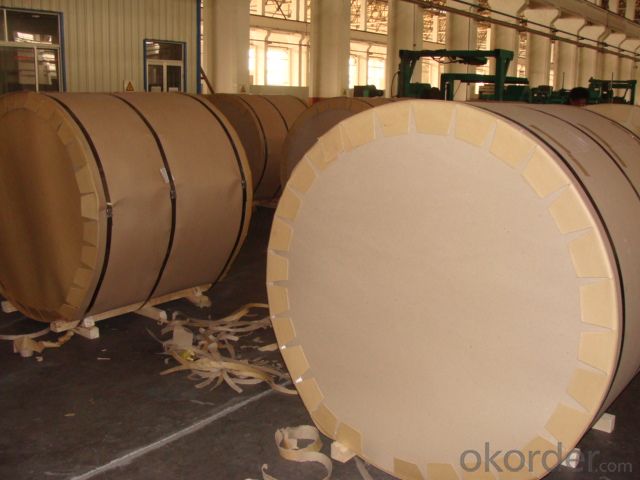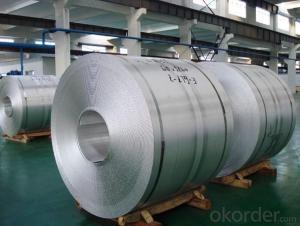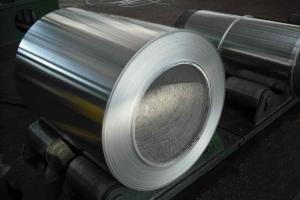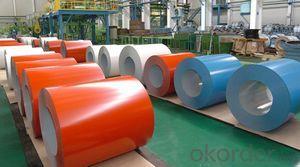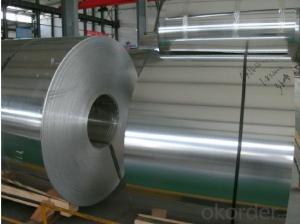Wholesale AA1060 Aluminum Coils for Construction
- Loading Port:
- Shanghai
- Payment Terms:
- TT or LC
- Min Order Qty:
- 5 m.t.
- Supply Capability:
- 10000 m.t./month
OKorder Service Pledge
OKorder Financial Service
You Might Also Like
Specification
1.Structure of AA1060 Aluminum Coils used on Construction Description
AA1060 Aluminum Coils used on Construction has great ductility, heat conductivity, anti-corrosion and moisture resistance properties.
AA1060 Aluminum Coils used on Construction is widely used for PP cap stock, hot rolled thick plate, aluminum curtain wall base plate, the traffic sign ,air-conditioner heat and exchangers.
2.Main Features of AA1060 Aluminum Coils used on Construction
a.Competitive price---We have our own mills and can produce mill finished aluminium coils, so we can control the production cost better.
b.Professional after-sale service---We have more than 15 years exportation experience and you need not worry about the exporation problems.
c.Fast delivery time---We can control the delivery time within 35 days.
3.AA1060 Aluminum Coils used on Construction Images
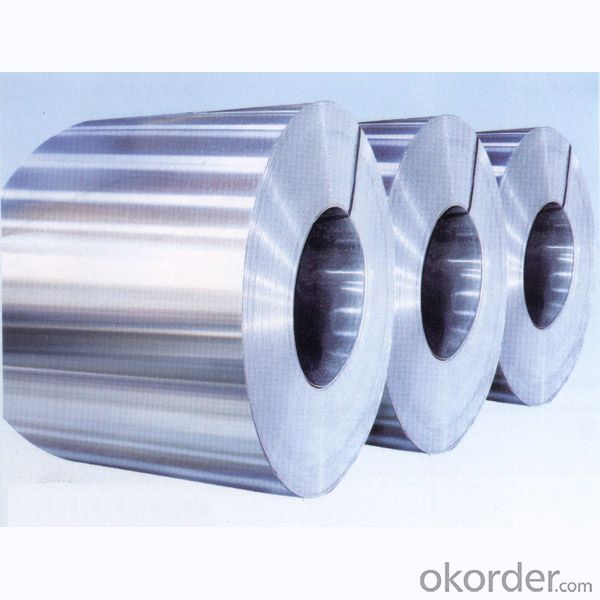
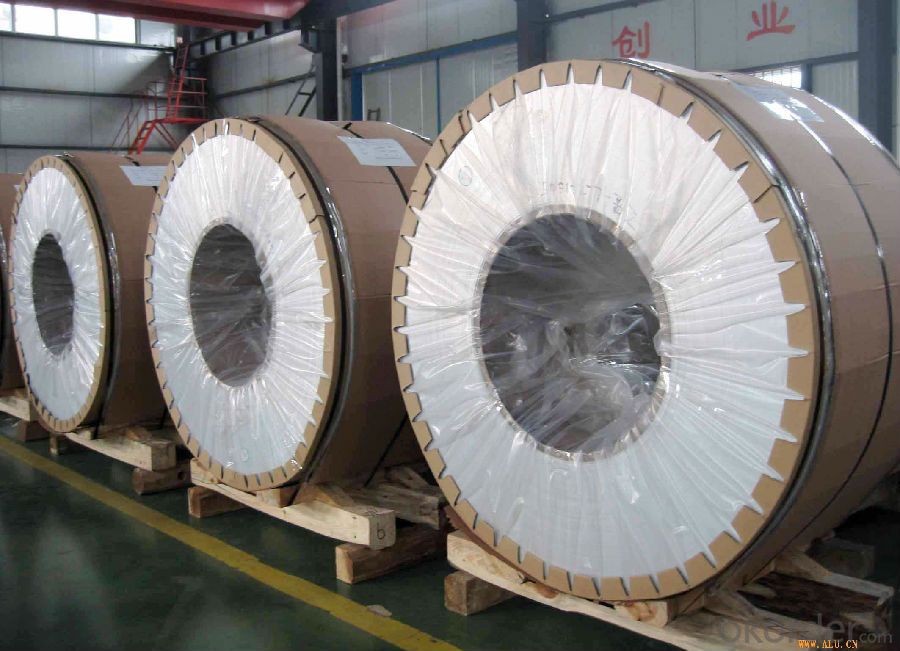
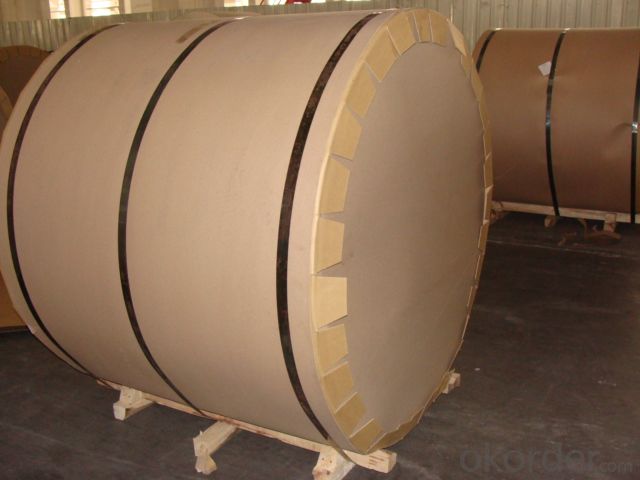
4.AA1060 Aluminum Coils used on Construction Specification
Alloy | A1060 |
Temper | H14, H16, H18, H22, H24, H26, H32, O/F |
Thickness | 0.2mm -- 100mm |
Width | 30mm -- 1700mm |
Standard | GB/T 3880-2006,EN |
5. FAQ of AA1060 Aluminum Coils used on Construction
A.How to guarantee the quality?
Customers are welcome to our mill to visit and check the products. Besides, we can arrange a third party to test AA1060 Aluminum Coils used on Construction.
B.When will you deliver the products?
AA1060 Aluminum Coils used on Construction will be delivered within 35 days after receiving advanced payment or original L/C.
- Q: How do aluminum coils contribute to energy-efficient appliance manufacturing?
- Due to their unique properties and benefits, aluminum coils play a vital role in the manufacturing of energy-efficient appliances. The lightweight nature of aluminum allows for reduced overall weight in appliances, making transportation and installation easier. This leads to decreased energy consumption during transportation and less strain on the appliance. Additionally, aluminum possesses excellent thermal conductivity properties, which are essential in designing energy-efficient appliances. When used in coils, aluminum enables efficient and rapid heat transfer, resulting in more effective cooling or heating while consuming less energy. This improved thermal efficiency not only reduces energy consumption but also enhances the overall performance and lifespan of the appliance. Furthermore, aluminum coils are highly resistant to corrosion, making them ideal for appliances exposed to moisture or humid environments. By utilizing aluminum coils, manufacturers ensure durability and longevity, reducing the need for frequent repairs or replacements. This durability minimizes energy waste associated with manufacturing and disposing of appliances. Moreover, aluminum is a highly recyclable material that can be recycled infinitely without losing its properties. By incorporating aluminum coils into appliance manufacturing, manufacturers promote sustainability and reduce their carbon footprint. The use of recycled aluminum also requires significantly less energy compared to producing new aluminum, further contributing to energy efficiency. In conclusion, the lightweight nature, excellent thermal conductivity, corrosion resistance, recyclability, and overall durability of aluminum coils contribute to energy-efficient appliance manufacturing. By leveraging these advantages, manufacturers can create appliances that are not only more energy-efficient but also more sustainable and long-lasting, benefiting both consumers and the environment.
- Q: What is the process of manufacturing aluminum coils?
- The process of manufacturing aluminum coils involves several steps. First, raw aluminum is obtained from bauxite ore through a mining and refining process. The refined aluminum is then melted in large furnaces and cast into ingots or billets. These ingots are then rolled into thin sheets or strips using a rolling mill. The sheets are further processed by annealing, which involves heating and cooling to enhance the material's properties. The annealed sheets are then rolled again to achieve the desired thickness and shape, forming coils. The coils may undergo additional treatments like coating, polishing, or embossing depending on their intended application. Finally, the coils are inspected for quality and cut into specific lengths before being packaged for shipment to various industries that utilize aluminum in their manufacturing processes.
- Q: Are aluminum coils suitable for electrical insulation?
- No, aluminum coils are not suitable for electrical insulation as aluminum is a conductor of electricity, meaning it allows the flow of electric current rather than insulating it.
- Q: Can aluminum coils be used in electrical cables?
- Electrical cables can indeed incorporate aluminum coils. Aluminum is widely utilized as a material for electrical conductors due to its exceptional electrical conductivity and comparatively lower cost when compared to copper. Its usage is particularly prominent in power transmission and distribution cables that necessitate long-distance transmission. Overhead power lines and underground cables often employ aluminum coils. However, it is crucial to acknowledge that aluminum possesses a lower tensile strength than copper, requiring careful design and manufacturing of the cables to ensure sufficient mechanical strength. Furthermore, achieving the same electrical performance with aluminum conductors necessitates larger cross-sectional areas compared to copper, potentially resulting in slightly larger cable sizes.
- Q: What are the potential health hazards associated with the use of old aluminum coils?
- <p>Using old aluminum coils can pose health risks due to potential leaching of aluminum into food or beverages. Long-term exposure to aluminum may lead to cognitive impairments and neurological issues. Additionally, old coils may have accumulated dirt, bacteria, or other contaminants that could cause infections or digestive problems. It's important to regularly inspect and replace aluminum cookware to ensure safety.</p>
- Q: Are there any limitations to the maximum coil length of aluminum coils?
- Yes, there are limitations to the maximum coil length of aluminum coils. The maximum coil length depends on various factors such as the thickness and width of the aluminum coil, the strength and tensile properties of the aluminum alloy, the equipment used for coil processing, and the intended application of the coil. One limitation is the strength and ductility of the aluminum alloy being used. Aluminum alloys with higher strength and lower ductility may have limitations on the maximum coil length due to the risk of coil breakage or deformation during processing or handling. Another limitation is the equipment used for coil processing. The maximum coil length is often determined by the size and capabilities of the equipment used for slitting, cutting, or forming the coils. If the equipment has a limited capacity or is not designed for longer coils, it may not be able to handle or process longer lengths effectively. The intended application of the coil can also impose limitations on the maximum coil length. For example, if the coil is intended for transportation purposes, such as in the automotive industry, there may be restrictions on the maximum coil length based on the size and weight limitations of the vehicles. Additionally, logistical factors such as transportation and storage can also impose limitations on the maximum coil length. Longer coils may be more difficult to handle, transport, and store, which can increase the risk of damage or pose challenges in terms of logistics and space requirements. Therefore, while there is no specific universal limit to the maximum coil length of aluminum coils, it is essential to consider various factors such as alloy properties, equipment capabilities, application requirements, and logistical considerations to determine the practical limitations of coil length for a specific situation.
- Q: This question asks for the method to determine the weight of a steel coil.
- <p>To calculate the weight of a steel coil, you need to know its length, width, and thickness, as well as the density of the steel material. The formula to calculate the weight is: Weight = (Length 脳 Width 脳 Thickness) 脳 Density. The density of steel is approximately 7850 kg/m鲁. Convert the dimensions to meters if they are not already in that unit. Multiply the volume (length 脳 width 脳 thickness) by the density to get the weight in kilograms. For example, if a coil is 2 meters long, 1 meter wide, and 0.005 meters thick, its weight would be (2 脳 1 脳 0.005) 脳 7850 = 78.5 kg.</p>
- Q: An they say aluminum can cause breast cancer in some.
- La okorder /
- Q: How are aluminum coils tested for quality control?
- Aluminum coils go through numerous quality control tests to ensure their reliability and performance. One primary test is the dimensional inspection, where the coils' physical dimensions are measured and compared to the manufacturer's specifications. This helps identify any discrepancies in length, width, thickness, or diameter. Another critical test is the visual inspection, where the coils are thoroughly examined for surface defects like scratches, dents, or discoloration. This visual examination is crucial to ensuring that the coils meet the required aesthetic standards. To evaluate the mechanical properties, various mechanical tests are conducted. Tensile strength tests measure the coils' resistance to breaking under tension, determining their durability and strength. In addition, hardness tests assess the coils' resistance to indentation or deformation. The hardness values are compared to predetermined standards to verify if the coils meet the necessary criteria. Corrosion resistance testing is also conducted to assess the coils' ability to withstand corrosion over time. This test exposes the coils to harsh environments or corrosive substances, which is crucial as aluminum is often used in applications that may involve contact with corrosive elements. Electrical conductivity tests ensure the proper functioning of the coils in electrical applications. Conductivity is measured and compared to the required specifications to guarantee that the coils possess the desired electrical characteristics. Additionally, depending on the specific requirements of the aluminum coils, other tests like chemical composition analysis, surface roughness evaluation, and coating adhesion tests may also be performed. Overall, these comprehensive quality control tests enable manufacturers to ensure that aluminum coils meet necessary standards, ensuring their quality, performance, and reliability in various applications.
- Q: Are aluminum coils suitable for thermal insulation?
- Aluminum coils, unfortunately, do not serve as suitable thermal insulation. With its high conductivity, aluminum promptly transfers heat, rendering it ineffective in impeding heat transfer between areas or maintaining desired temperatures within a given space. In order to achieve optimal thermal insulation, materials boasting low thermal conductivity, such as fiberglass, mineral wool, or foam insulation, are preferred as they effectively minimize heat transfer and offer superior insulation.
Send your message to us
Wholesale AA1060 Aluminum Coils for Construction
- Loading Port:
- Shanghai
- Payment Terms:
- TT or LC
- Min Order Qty:
- 5 m.t.
- Supply Capability:
- 10000 m.t./month
OKorder Service Pledge
OKorder Financial Service
Similar products
Hot products
Hot Searches
Related keywords
